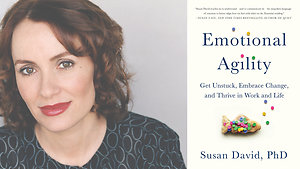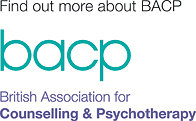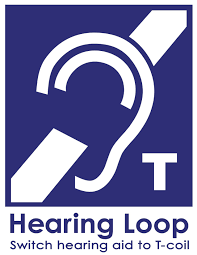Depression is something that many adults will face at some point in their lives. It is a human emotional experience that may comprise of a feeling of sadness, hopelessness, and maybe helplessness. It can also happen to animals, although this is my opinion.
We often want to hide ourselves away when we feel depressed and isolate ourselves from friends and family. It has been suggested that women suffer mre depression than men, however women can also be surpessed more than ment in their daily lives. I beleive that our environment and context can cause feelings of hopelessness and depression, if we feel that we do not have a voice it will feel like we are pushing our voice down to hide it because it is ignored or not allowed.
Red is such an interesting color to correlate with emotion, because it's on both ends of the spectrum. On one end you have happiness, falling in love, infatuation with someone, passion, all that. On the other end, you've got obsession, jealousy, danger, fear, anger and frustration.
Taylor Swift
Five signs of emotional suffering
1. A gradual or sudden change in personality.
2. Uncharacteristic anger, anxiety or agitation.
3. Withdrawal or isolation from other people.
4. A decline in personal care.
5. Being overcome by hopelessness.
These can be your own observations of yourself, or observations of loved ones.
Shame
"Shame is I am bad. Guilt is I did something bad."
"Shame is highly highly correlated with addiction, depression, violence, aggression, bullying, suicide, eating disorders."
"Guilt; inversely correlated with those things.
The ability to hold something we've done or failed to do up against who we want to be is incredibly adaptive. It's uncomfortable, but it's adaptive.
The other thing you need to know about shame is it is absolutely organised by gender."
Brene Brown Ted Talk
Tiredness and mental health
It is proven, that being tired can affect your anxiety levels, as can a hangover! Put the two together and it can lead to a highly aroused sate of anxiety leading to depression.
Sleep has to be learnt, as a child it is not something that occurs naturally for most, some of course it does. Most babies fall asleep after a feed without any difficulty, as they grow it can become a struggle. Then as adults we still struggle on. There is the point of awareness, just before sleep, that we fall into that can be frightening for both adults and children. We need to be in a relaxed state to allow this state to come upon us, with today's switched on world that can be difficult, most of us look at our phones in bed and the blue light it emits tells our brains it is tome to be alert.
Try sitting by the side of your bed so you are not in your bed but on it without the covers. Feet on the floor, then you can use your phone before bed and this can aid sleep and help you to switch off and fall asleep.
A weighted blanket can also be beneficial, or a heavy blanket, to aid a restful sleep. Usually they are used for people who suffer with PTSD, but they can help anyone.
Hypnosis can relax you before bed and whilst you are in bed, so that you get a good nights rest.
When you are facing anxiety and depression it can affect your sleep, which in turn affects your anxiety and depression. Sometimes getting the sleep right can be the first step in recovery and I can help with this in therapy. Using techniques I have described above can lead to a successful outcome.
What are the signs to look for?
If you notice any of these symptoms in yourself or close family and friends it may be a sign that their mental health is unwell. This is when therapy helps.
Withdrawal — Recent social withdrawal and loss of interest in others.
Drop in functioning — An unusual drop in functioning, at school, work or social activities, such as quitting sports, failing in school or difficulty performing familiar tasks.
Problems thinking — Problems with concentration, memory or logical thought and speech that are hard to explain.
Increased sensitivity — Heightened sensitivity to sights, sounds, smells or touch; avoidance of over-stimulating situations.
Apathy — Loss of initiative or desire to participate in any activity.
Feeling disconnected — A vague feeling of being disconnected from oneself or one’s surroundings; a sense of unreality.
Illogical thinking — Unusual or exaggerated beliefs about personal powers to understand meanings or influence events; illogical or “magical” thinking typical of childhood in an adult.
Nervousness — Fear or being suspicious of others or a strong nervous feeling.
Unusual behavior – Odd, uncharacteristic, peculiar behavior.
Sleep or appetite changes — Dramatic sleep and appetite changes or decline in personal care. Not being able to shower or brush your hair.
Mood changes — Rapid or dramatic shifts in feelings.
None of these symptoms are a choice. If you are suffering it can be the hardest thing to reach out and get help, it can also be the most important thing you do to aid your recovery.
Depression
If you feel depressed therapy can help. A Doctor may prescribe it and sometimes CBT therapy can be useful. NICE Guidelines also state that talking therapy for depression is useful in the treatment.
Some feel that you never get a cure from Depression, just ways to deal with the effects and locating triggers, if you have any, can be useful to prepare for a period of depression.
There are many symptoms of depression, if you feel any of the following you may be suffering depression:
Low mood, loss of motivation, loss of appetite, unable to get to sleep, constipation, loss of libido, no or low energy.
If you feel like this you can make an appointment to see your Doctor and get support, You can also use therapy to deal with depression. For example, feeling confused about how we feel can cause depression because it disrupts our brains usual activity and therefore can effect everything else our brain does.
Depression is an illness that has an effect on our brain and sometimes medication can help along with therapy. The medication a Doctor prescribes is usually anti depressants, always make sure you check with your Doctor before stopping any medication prescribed. The medication has a effect on parts of the brain and can suppress the low mood so that therapy is possible, without the medication the patient may not seek out help.
Social Media may be one of the first places people go to express their feelings of distress, if you find yourself on one of these platform expressing feelings that do not make sense to you therapy can be a place to unravel how you feel and work on strategies to move forward.
Why do we apologise for being emotional?
If we get upset we can find ourselves saying sorry for crying or sniveling! Is this a real way to behave or a reaction to a perception that emotions are weak, messy, wrong and control you, rather than a reflection on how you are feeling.
Thinking about what is appropriate and genuine can cause a sense of shame around normal emotions.
Anger is often an emotion people feel afraid of showing, yet it is a normal emotional feeling and can often give insight to what is wrong or unjust.
Emotional Agility by Susan David gives great insight in the way we can handle our emotions, rather than them handling us. When we feel anger the usual response is to hide from it and deny its existence, or laugh it off! If we go into it and think about why we are angry, a therapist can help, we can see that our response forms part of our value system and we see an injustice.
Ah, it makes sense!
Crying is also an emotional response that is normal, yet we perceive it as weak. The same process can apply to crying, so it gives us information about our values and what we find upsetting. Death can make us cry and the natural grief process, but we may be confused if we cry at the funeral of someone we didn't know. We have assigned our emotional a value judgement and not a spontaneous feeling that they are. Death and grief can make humans feel a shared sense of sadness, normal, we need these shared feelings to feel compassion and connection.
Dehydration and Mental Health.
Our mind and body are linked, not just by the neck but by each other! So, we can be aware of how our body works, for example, being dehydrated is not good and can cause physical problems. It can also effect our mental health, most of us do not know this and would be surprised to hear this. When we do not drink enough it can effect our mood, cognition, memory and concentration. By the time we are thirsty it is already too late and we are dehydrated and feeling the effects on our mental health.
It is usually stated that 8 glasses of water are a good guide for humans, however, each person is different, you know when you have had enough and are not thirsty anymore. Coffee and tea and mostly water, so your morning cup counts as part of keeping hydrated, so does eating a bowl of soup.
Women suffer the effects of mild dehydration more then men, experts are not sure why this is, but it could be part of the primitive alerting system in our brain.
The early signs of dehydration are;
Increased thirst.
Dry mouth.
Tired or sleepy.
Decreased urine output.
Urine is low volume and more yellowish than normal.
Headache.
Dry skin.
Dizziness.
I also find that my hands start to appear pruney!
Borderline Personality Disorder aka Emotionally Unstable Personality Dissorder
This is a group of personality traits that have been identified together and witnessed in a number of individuals and the outcome is labelled as BPD (Borderline Personality Disorder). The classification is in the DSM 5 (Diagnostic Statistical Manual Ed. 5) and is used by medical practitioners (psychiatrists). It can be useful to have a diagnosis to use in therapy, it can also be useful to find out about what happened to the person with the diagnosis, it is never just a diagnosis. The human can learn other coping strategies and learn how their suffererance came about. If you have suffered a trauma, you can be left with some of these symptoms, which are normal trauma responsses not signs of a disordered mind.
Often the person will feel uncontrollable emotional intensity, which can manifest as;
impulsive behaviour
poor self image
unstable relationships
fear of abandonment
suicidal ideation or self harm
dissociation and emotional pain
Note; these are all common experiences of people who have suffered trauma and there is no disorder when a human reacts to trauma in the normal way.
OCD - obsessive compulsive disorder
This mental health phrase is often used by people who do not suffer. It is used as a way to describe behaviour such as neatness, or controlled order. For example, "I like my books in alphabetical order, I am a little OCD!"
This is not an accurate description of OCD, at all. It is characterised by two parts, the compulsion and the obsession. These are then driven by intrusive thoughts and anxiety that get in the way of normal daily life.
The complusion is an instruction that, if not done, will result in bad things happening "I must wash my hands until the contamination is gone!"
It is followed by an obsession, "I am not clean!", which can be more intense in each individual sufferer. There is not set pattern of symptoms, each person may obsess over a different compulsion, but there are intense feelings of shame if the obsession is not followed through.
It can be rituals involving counting, washing, sex, cleanliness, contamination, religion, sex, violence, loss of control, physical harm or perfectionism.
There is no "cure" for OCD, but medication and psychotherapy can help to deal with the symptoms. Compasionate Inquiry can also help to deal with the shame that occurs.
Self care
This is a most important part of LIFE!
We tend to leave it till someone else takes the time to treat us. We tend to feel we are only worth it if someone else chooses to treat us good. It seems to stem from a false modesty from years ago, that does not serve us well. It was seen as selfish to be kind to yourself, this is not the case. I am going to repeat that!
IT IS NOT SELFISH TO TREAT YOURSELF WITH CARE!
Here are some ideas about self care, remember it is crucial if you have suffered a trauma or relational trauma or betrayal trauma all can lead to depression, anxiety or other mental health issues, but it is just as important if you do not.
1. Cry, then cry, then cry! Make time and space to do this, safely and contained.
2. Reach out to a friend or family member that you trust.
3. Say No, when you do not want to do something.
4. Go to see a therapist to learn how to say No.
5. Watch you favorite funny/silly/easy going film or tv show.
6. Get your favorite book and reread it.
7. Practice sleep hygeine.
8. Know your personal limitations and set personal boundaries so you can limit burnout and exhaustion.
9. Look at inspiring and gorgeous Art.
10. Ask for help, from your boss, doctor, loved one, friend. It is the bravest thing you can do.
11. Be mindful and intentional, really taste that food you are eating or smell the intense aromas.
12. Smell your favorite and most wonderful smells.
13. Start a journal or daily diary.
14. Do exercise that you enjoy, til you puff and pant.
15. Look at inspiring quotes on brainyquotes.co uk
16. Cuddle someone, if you are alone, cuddle a pillow or cushion.
17. Go outside, even in the rain, this can give you perspective on yourself and a connection to the planet so you know we are all part of something much bigger than ourselves.





